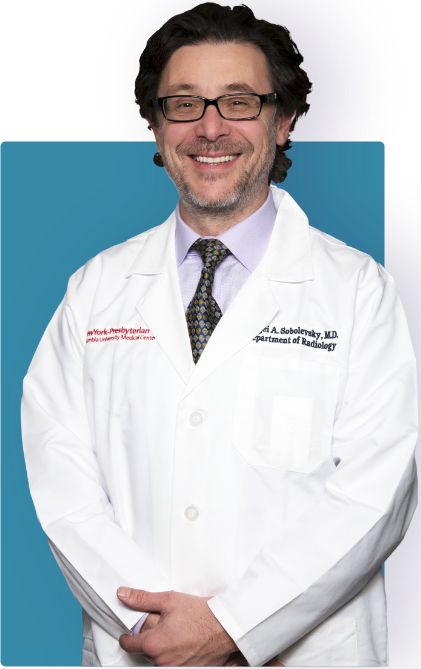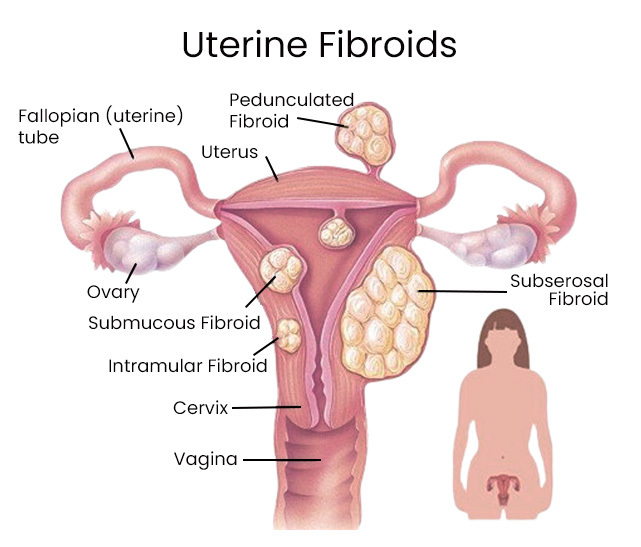When you have pelvic pain or unexplained or heavy menstrual bleeding at any time during the month, there’s a chance you have uterine fibroids or adenomyosis. The best treatment to help with uterine bleeding and pelvic pain is uterine artery or fibroid embolization. Make an appointment with Dr. Sobolevsky at the Downtown Vein & Vascular Center. Call today to find out if you have uterine fibroids and what options you have for the best treatment.
What Are Fibroids?
 Fibroids are non-cancerous tumors that form within the walls of your uterus. These tumors are usually driven by estrogen, a hormone that also stimulates the re-growth of the endometrial lining.
Fibroids are non-cancerous tumors that form within the walls of your uterus. These tumors are usually driven by estrogen, a hormone that also stimulates the re-growth of the endometrial lining.
Left undiagnosed and untreated, fibroids can cause an array of issues, including:
- Uterine bleeding
- Abnormal pelvic cramping
- An enlarged uterus
- Pelvic pain, pain with intercourse and general daily discomfort
- Infertility
Fibroid bleeding can be excessive, as well as increasingly annoying and painful. Fibroids occur most commonly in women between the ages of 35 and 50, and they’re especially prevalent in African American women.
Choose a specialist, especially if you’re planning on getting pregnant in the future or believe you’re pregnant now. Rely on an experienced fibroids doctor at the Downtown Vein & Vascular Center. The specialty clinic in Brooklyn, NY has more than one option available for fibroid treatments. The sooner you seek fibroids treatment, the better chance you have of reducing risks of further complications.
“Uterine fibroids are very common, affecting about 80% of women by the time they reach menopause. Most women with fibroids don’t have any symptoms, but for those who do, the symptoms can range from mild to severe.” – Dr. Mary Jane Minkin, Clinical Professor of Obstetrics and Gynecology at Yale University School of Medicine

You can end your search for a “fibroid doctor” by simply scheduling an appointment with Dr. Sobolevsky at the Downtown Vein & Vascular Centre. With years of experience in endovascular medicine, he will provide you with an effective and long-lasting solution for your specific case
What Are the Symptoms of Fibroids?
Some women experience little to no symptoms as these benign tumors develop. In others, they may lead to pain and sharp cramps in the lower abdomen and back. The severity of related conditions often depends on how long treatment is delayed.
These growths can range in size from one millimeter to more than 20 centimeters. In certain cases, multiple lesions combine to form large masses, which can cause the uterus to expand.
Symptoms may differ in severity but generally include:
- Heavy menstrual flow. Your period may involve abnormally large amounts of blood and last for seven days or more.
- Bladder problems. Some women experience difficulty emptying their bladder or feel pain during urination when uterine pressure is present. Others report frequent urination due to bladder compression.
- Weight gain. As these tumors grow, they can increase overall body weight and lead to visible bloating.
- Pelvic pain. Severe cramping and pressure in the pelvis, lower back, and legs may occur if the uterus becomes inflamed. This condition can also cause pain during sex.
“Fibroids can cause a variety of symptoms, including heavy menstrual bleeding, pelvic pain, pressure, and constipation. They can also make it difficult to get pregnant or carry a pregnancy to term.” – Dr. Lauren Streicher, Professor of Obstetrics and Gynecology at Northwestern University Feinberg School of Medicine
Our Patients Talk About
Their Fibroids Treatment Experience
What Happens if Fibroids Go Untreated?
Fibroids that do not cause any symptoms do not need to be treated. But if you’re having fibroid symptoms, chances are that the fibroids will continue to grow, creating worsening symptoms. Bleeding gets heavier, cramps become more severe, and swelling in your abdomen becomes more pronounced.
By letting fibroids go untreated, you may experience:
- Loss of urinary control and more frequent urination
- Heavier periods that keep you immobilized
- Disrupted intimacy due to pain during sex
- Inability to get pregnant
What’s the Best Treatment for Fibroids?
Fibroids treatment varies. If you may decide to wait and see before seeking treatment from a fibroid doctor, the pain and discomfort may start affecting your daily life. If you don’t want to risk serious consequences, you need treatment from the best fibroids doctor in New York City.
Left untreated, fibroids often increase in size and number, leading to more pain and heavier bleeding. Untreated adenomyosis also leads to the same worsening symptoms.
The most common, effective treatments include:
- Uterine fibroid embolization. This often recommended procedure is minimally invasive and preferable for removing fibroids while pregnancy is still an option for you. It involves blocking blood flow to the tumors, allowing them to shrink naturally. There are minor risks and significant benefits with a minimal recovery time.
- Myomectomy or hysterectomy. A myomectomy is a surgical procedure designed to remove just the fibroids, leaving the uterus intact, whereas a hysterectomy is performed when you want to remove your entire uterus. A hysterectomy is a drastic measure, but the only one that ensures you never have uterine fibroids again.
Embolization is the best way to get rid of fibroids and adenomyosis. When seeking a specialist in the greater Brooklyn area, contact the Downtown Vein & Vascular Center. Get advice from an expert for the best fibroids treatment that fits with your lifestyle and your health needs. Dr. Sobolevsky serves Brooklyn and all of New York City from his state-of-the-art facility.
Downtown Vein Treatment Center
480 Court Street, Ste 101
Brooklyn, NY 11231
(718) 787-5559


